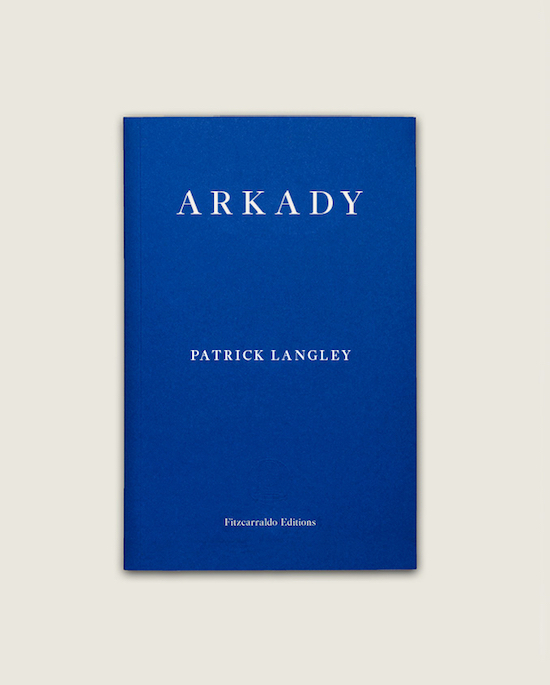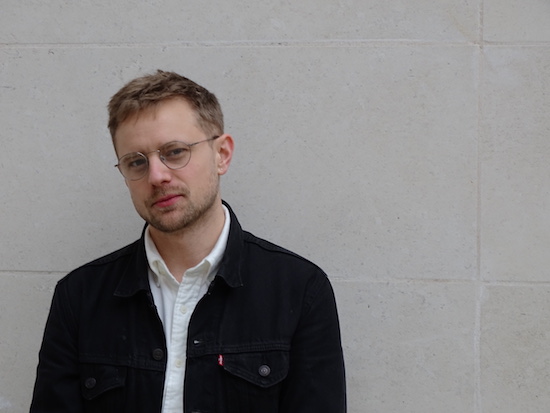I first read Doris Lessing’s novel The Good Terrorist in early 2012. At that time, London’s atmosphere was febrile, electric with the sense that violence could erupt at any moment. There was good reason to think so. In 2010, student protestors had taken to the streets, smashing windows, lighting flares, and flying an anarchist flag from the rooftop of the Conservative Party’s headquarters. Then, in the blood-hot summer of 2011, riots flared across England, sparked when police officers shot Mark Duggan. It was a very particular moment, suspended between contradictory events: those uprisings, with their bruised aftermath; and the Olympics, which rolled circus-like into town later that spring. My head still abuzz with Occupy Wall Street, the Arab Spring, and the strikes and demonstrations taking place across Greece, it seemed possible that the world might change for the better, or maybe burn to ashes, and that the agents of transformation would be people of my generation.
The Good Terrorist helped put that moment in perspective. For Lessing, revolution begins in the home, and home can be a place of pettiness, hypocrisy, and blinkered naivety. In the opening pages, Alice Mellings – a young woman from Hampstead desperate to obliterate the middle classes, despite being one of them – moves into 43 Old Mill Road, a once grand, now tumbledown house squatted by a group of pro-IRA revolutionaries. For the rest of the novel, Lessing follows Alice and this fractious group of outsiders as they plan a bomb attack in central London. The mood throughout is grinding and ominous, leavened by moments of grim humour, such as when Alice stomps, like a petulant teenager, to her father’s house, and smashes his window with a rock.
Despite the extremity of its subject matter, The Good Terrorist is a pretty conventional book. The action is almost exclusively confined to domestic spaces, however squalid. (There is rubbish everywhere, and the ‘comrades’ next door seem to be burying explosives in the back garden.) It’s written in a linear style that wouldn’t feel out of place in the late nineteenth century, and its sources of dramatic tension – generational discord, romantic strife – are mainstays of the realist genre. What attracted Lessing to her subject was not hardline politics itself. She was curious about the social conditions that allow extreme views to develop in the first place.
The realist mode is therefore part of the novel’s satirical point. Lessing views her band of zealots and layabouts through the sober lens of the traditional English novel – itself a product of the bourgeois culture the group so murderously loathe – to emphasise an irony: that this radical community is just a reflection, however warped, of the traditional, middle-class family unit. Despite having once been an active member of the British Communist Party, Lessing portrays her characters as bumbling, self-involved amateurs who can barely boil eggs, let alone organise a revolution. A contemporary reviewer of the book chastised Lessing for failing to offer a clear opinion on “whether Alice and her friends are ‘the salt of the earth or its scum”. But precisely her point is they’re neither. Or they’re both. They’re people, in other words.
When I began to write Arkady, my first novel, I thought back to those years of disruption, between 2010 and 2012, during which a haze had seemed to hang across the city: smoke-grenades lit by protestors, buildings ablaze after riots – and a vaguer sense of street-level anger rising like heat into summer air. I felt compelled to capture some of that atmosphere in the novel, not least because it had felt like a defining moment in Britain’s recent political history. But zeitgeists, however intoxicating, don’t always make for compelling fiction. I had my central characters – two bereaved, socially marginalised, and fiercely protective brothers who live in the shadows of gleaming towers, assembling a life from scraps against a backdrop of civil unrest – but it was a while before I found the right shape. So I kept reading. I looked for novels that address grand events at a human scale, and which take as given something that many authors – Zadie Smith, Lauren Groff, Danez Smith – have recently reaffirmed: that all writing is political. As George Orwell recognised, to deny this is itself a political statement.

In contrast to The Good Terrorist, some authors break their novels’ surfaces to reflect the broken worlds they describe. The City Always Wins by Omar Robert Hamilton is one example: a formally daring account of the Egyptian revolution of 2011. There is none of Lessing’s ironic detachment, nor the homogenising smoothness of her realist prose. Instead there is a blizzard of information. Tweets, texts, headlines, unattributed dialogue; a chunk of a book by Eric Hobsbawm; lists of media platforms and devices: “Samsungs, Twitters, HTCs, emails, Facebook events, private groups, iPhones, phone calls” – it’s a swarm of facts and atomised details. As a result, The City Always Wins feels less like a novel than a live feed of an event unfolding in real time. It is by turns exciting, confusing, and fatiguing. The short chapters shift, with bewildering haste, between perspectives, reflecting the scrambled immediacy of the moment – “the street’s assault course of words and sounds and unwanted invitations” – and, later, the wreckage left when revolution fails.
Hamilton’s novel offers us a view of the revolution from the highly connected perspective of a media organisation called Chaos, the “cerebral cortex at the centre of the information war”. Despite its name, Chaos strives to impose order, of a kind, on the confusion by filtering and distributing news. At the novel’s centre are Khalil, an Egyptian-Palestinian-American, and Mariam, his Egyptian girlfriend. But their lives are so conditioned by unfolding events that the reader barely gets a sense of their love. As in The Good Terrorist, the practical demands of political action leave precious little time to luxuriate in romance, and Khalil and Mariam’s interiority is filtered through, and obstructed by, the political. Towards the end of the novel, the couple film a mother relating her account of how her son died: “They threw a gas canister into the truck. The police. They burned them.” A paragraph later, the couple hold hands. Only then does Khalil realise “how long it’s been since we touched each other”.
Lessing received letters, not tweets, in response to The Good Terrorist. Among these was a note from a former member of The Red Brigades, the left-wing terrorist group which, between 1970 and 1988, engaged in robberies, kidnaps, assassinations, and murders across Italy. Lessing had apparently captured precisely how it felt to be a member of The Red Brigades “before they became serious”, by which the letter’s author meant: before they started killing people. Hamilton’s characters aren’t afforded the option of dropping out before things get serious. Death is all around them, on the streets and in prisons. One reading of the novel’s disrupted structure: it’s an attempt to mirror the fragmentary effects of tremendous suffering, of a grief that transcends the human mind’s ability to process it. Tragedy on the scale that Hamilton writes about – the revolution’s true cost – has a shattering effect. At a formal level the book feels traumatised, trapped in a jittery replay, unable to cohere into a rational, realist form.
And maybe the pieces will never fit back together. But it might be possible to organise them differently. In Human Acts, Han Kang describes the legacy of the 1980 Gwanju Uprising in South Korea, in which government troops massacred pro-democracy protestors (bystanders too – the soldiers fired indiscriminately). “There is no way back to the world before the torture,” she writes, in Deborah Smith’s translation. “No way back to the world before the massacre.” The Gwanju Uprising proved that the slogan of the World Social Forum was right: another world is possible. It just happened to be a world defined by suffering, and by the struggle to preserve human dignity in the face of irreversible loss. The stakes of radical protest, Kang reminds us, are high. Lessing’s characters are childishly naïve in the build-up to their bodged explosion. Hamilton’s are so hopelessly entangled in the moment that they lost the ability to process it. Kang’s, meanwhile, are forced to reckon with the harrowing shadow of their confrontation with state power.
In a few very broad respects, conditions in early 1980 in South Korea weren’t a million miles from those in the UK in around 2010–2012. The economy was in decline. Demonstrations were on the rise. And perhaps that’s where the similarities end. In Gwangju, the protestors were not resisting an austerity programme implemented by elected politicians, but an authoritarian regime led by the dictatorial General Chun Doo-hwan, who had seized power, in December 1979, in a coup d’état. A haunting refrain of The City Always Wins is the search for missing people: protestors who vanished during the eighteen-day uprising, or were eerily ‘disappeared’ in the crackdown that followed. (Hamilton’s cousin, the blogger and activist Alaa Abd El-Fattah, is still in prison.) Human Acts is, like Hamilton’s novel, polyphonic. The reader works like a detective, piecing together the story from seven discrete sections told from differing perspectives. The first of which focuses on Dong-ho, a young man who enters the municipal gymnasium – there’s “no room left in the morgue” – looking for the body of his friend.
As in her earlier novel The Vegetarian, Kang’s focus is on the body, and the dehumanising violence enacted upon it. As Deborah Smith explains in her introduction to the novel, Kang’s interest in the bodily cost of the uprising should be understood in the context of “somatic integrity – that violence done to the body is a violation of the spirit/soul which animates it”. Among the characters that feature in the various sections are Dong-ho’s mother; an editor facing censorship; an imprisoned protestor tortured for his involvement in the uprising; and even, in the Epilogue, ‘Han Kang’ herself – the author of the book who was herself in Gwanju during the uprising, but never a part of it, as a nine year-old girl.
For me, by far the most haunting, arresting, affecting chapter is the second. I can still remember vividly how it felt to first read it, this account narrated from beyond the grave – not just any grave, but a mass grave in which bodies are “piled on top of each other” in a “random jumble”. The grave, horrifically, keeps being replenished: bodies “with their skulls crushed and cratered”; bodies “dressed carefully in neat hospital gowns”. From this midden of putrefaction, the narrator’s soul floats skyward. In a moment of tender confusion, during which he feels the “breath-soft slip” of other dead souls bustling past him in the air, the narrator realises: “No one had ever taught me how to address a person’s soul.”
How do you address a person’s soul? It’s an impossible question, but perhaps Kang’s novel offers an attempt. Human Acts is itself, of course, a human act: an act of imagination, compassion, and remembrance – an antidote to the mindless acts of pulling triggers or thrusting bayonets. When it came to writing Arkady, it was Kang who offered the most compelling structural model, and I enjoyed the sense of actively constructing the shape of life by leaping from moment to intense moment. After writing a long first draft of Arkady, I stripped it back, pared away the connective tissue to reveal the moments that might define its young central characters’ lives. In their different ways, Lessing, Hamilton, and Kang helped me understand how a work of fiction might begin to formulate a response to something so amorphous, so atmospheric, as the way it felt to be alive in a time of political unrest.
Arkady by Patrick Langley is published 21 March by Fitzcarraldo Editions


